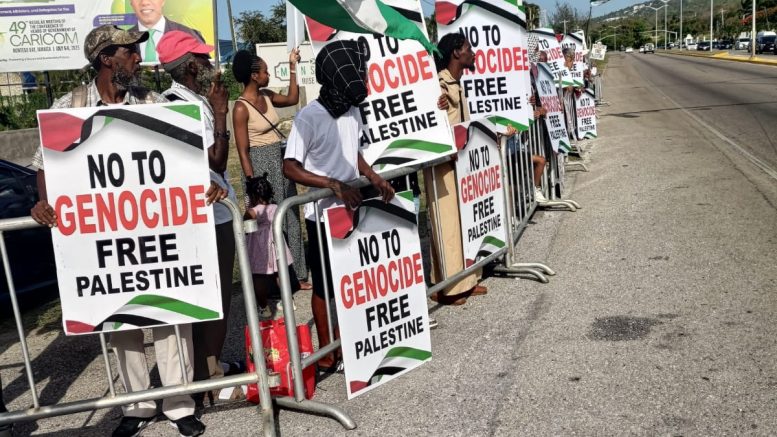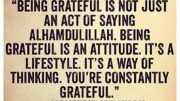The Jamaica-Palestine Solidarity Action issued the following press statement.
“NO TO GENOCIDE – FREE PALESTINE”
MONTEGO BAY, JAMAICA — In a defiant and emotionally charged protest, dozens of Jamaican citizens and allies assembled at the entrance of the Montego Bay Convention Centre during the opening of the 2025 CARICOM Heads of Government Summit. Their message was unequivocal:
“Break the Silence. Boycott Israel. End the Genocide in Gaza.”
Waving Palestinian flags alongside Jamaica’s black, green, and gold and raising placards that read “NO TO GENOCIDE – FREE PALESTINE”, demonstrators formed a human chain of conscience—visible to every regional delegate entering the venue.
The protest, organized by the Jamaica Palestine Solidarity Action Committee, denounced Israel’s military onslaught in Gaza and condemned CARICOM governments for their silence. The protestors called on regional leaders to take immediate and moral action:
Their Demands:
- • Sever diplomatic ties with Israel
- • Boycott Israeli products and businesses
- • Call for an immediate ceasefire and lift the blockade
- • Affirm the right of the Palestinian people to dignity, safety, and nationhood
“Our Caribbean stood up against apartheid in South Africa—why are we silent now? From Haiti to Cuba, we’ve always fought for justice. This is our test,” said one protestor.
With strong chants like “From the River to the Sea, Palestine Will Be Free!” and “One Love, One Struggle!”, the demonstration resonated across the hills of Rose Hall, amplified by regional and international media coverage.
Despite a strong police presence, the protest remained peaceful and dignified. Organizers pledged continued pressure throughout the summit, urging CARICOM to stand on the right side of history.
Under the headline “The Montego Bay declaration against genocide”, the columnist wrote about the subject matter. Dave Allen is a writer, researcher, and advocate for justice and self-determination. He writes on Caribbean liberation, theology, and geopolitics.
In it, he calls for the CARICOM Heads of Government to include in their declaration:
• That genocide, ethnic cleansing, and collective punishment are occurring in Gaza
• That all civilian lives, regardless of faith or ethnicity, must be protected under international law
• That the State of Israel must be held accountable for violations of the Geneva Convention and UN resolutions
• That the two-State solution remains the only viable path to a just and lasting peace
• That Caricom stands in solidarity with Palestinian Muslims, Christians, and all who reject Zionist extremism — including Orthodox Jews — who oppose the occupation.
This declaration must not be symbolic; it must be backed by action at the UN, within international legal bodies, and in the diplomatic corridors where conscience has too often been traded for silence.
What is at stake here is not only the survival of Palestine, it is the integrity of international law, the credibility of human rights institutions, and the moral compass of a world sliding into barbarism under the cover of exceptionalism.




